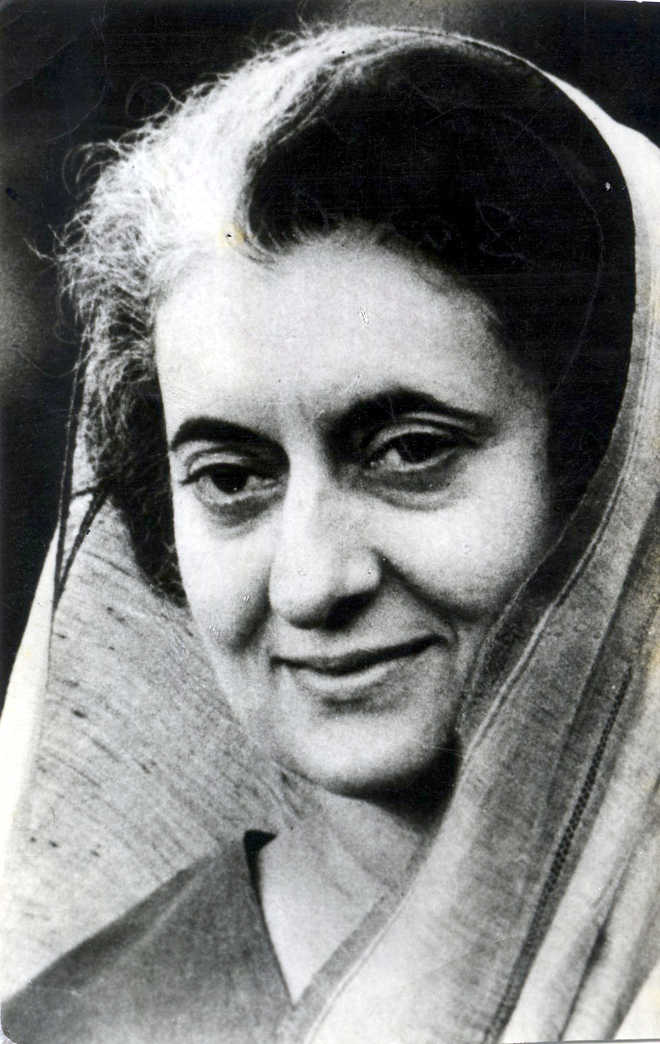
PN Haksar worked with Indira Gandhi from 1967 till 1973
Aditi Tandon
Better known as late Prime Minister Indira Gandhi’s powerful principal secretary, Parameshwar Narain Haksar was also a leader in his own right, unflinching in his loyalties, but brutally honest with his opinions.
Relegated to the corners of social memory, Haksar is back in all his glory, thanks to an insightful new book that follows the life of a man who contributed heavily to the making of Indira Gandhi in the initial years of her Prime Ministership.
Intertwined Lives: PN Haksar and Indira Gandhi by former Union minister and senior Congress leader Jairam Ramesh “rescues Haksar from amnesia” by tracing his relationship with Gandhi and the influence he had on her major decisions — nationalisation of banks, abolition of privy purses and princely privileges, early advocacy of direct and bilateral engagement with Pakistan and the imperative to build the atom bomb.
The book presents valuable glimpses into the decision-making in those critical years of Gandhi’s regime. It reflects on how Gandhi, ambushed by her own party, trusted Haksar for policy and political advice. Haksar, as Ramesh reveals through sources that include Nehru Memorial Library archives, contributed to almost all the speeches Gandhi delivered from the day she became PM on January 24, 1966 to the day she was assassinated on October 31, 1984. Among the few speeches that Haksar did not write for Gandhi was the one she delivered on radio on July 19, 1969 announcing bank nationalisation. That one was written by IG Patel, whom PM Narasimha Rao had first approached to be his Finance Minister in 1991. It was only when Patel declined that the job was offered to Dr Manmohan Singh.
The author describes Haksar as the “most unusual Indian who had not only a remarkable capacity to think but also was afforded an unusual opportunity to act.” His impeccable credentials as he guided the PM through the challenges of foodgrain shortage, economic mess and external aggression, are reflected throughout the book, especially on the following description by DP Mishra, a Gandhi advisor.
“Despite my aversion for Communists, I respected Haksar for his utter loyalty to Mrs Gandhi and at the same time for his refusal to participate in anything illegal or unethical even for her sake,” Mishra wrote in the late 1960s.
That Haksar spoke truth to power was evident from how he opposed Sanjay Gandhi’s move to manufacture small cars. Jairam Ramesh writes of December 1, 1968 when Sanjay Gandhi applied to the Ministry of Industrial Development for a letter of intent to manufacture a small car.
“Haksar had voiced his strong objection to the PM about her son dabbling in such a venture… and to Sanjay Gandhi staying at the PM’s residence and carrying out his business activities from there… His objections were fundamental. He was against diversion of scarce resources to manufacture cars and was for expansion of the scooter manufacturing capacities in public sector instead.”
The author concludes in the book that by speaking his mind on Sanjay Gandhi, Haksar had not only lost a battle but had made a deadly enemy.
“He made his views known to the PM. An uneasy truce prevailed. That was to end on September 30, 1970 when Sanjay Gandhi was finally given the letter of intent to manufacture 50,000 small cars every year without foreign collaboration and without imported raw materials. My reckoning is that this was the beginning of Haksar’s estrangement with Indira Gandhi. The final break would happen 27 months later,” Ramesh writes.
Among the many insights the book offers, the one on Haksar prevailing on Indira Gandhi to not grant minority status to Aligarh Muslim University is worth quoting. The AMU issue is still relevant with the demand coming up even now. However, when it was first raised in 1972, Haksar had opposed it in his note to Indira Gandhi. The note is an education in that it extols the principles of secularism while cautioning the PM against falling for appeasement politics.
“If Aligarh Muslim University is to be wholly maintained out of state funds for the benefit of Muslims why should Banaras Hindu University not be maintained for the benefit of Hindus? Thus the communal forces which are wittingly or unwittingly fanning up the demand for the Aligarh Muslim University retaining its Muslim character are giving sustenance and support to the RSS and the Jan Sangh to raise a similar demand vis-à-vis the Banaras Hindu University,” he said. His views prevailed even though the Prime Minister was under pressure from many MPs to concede.
When a similar situation arose with the unprecedented attack on the Parliament by cow protection groups, Haksar deflected the crisis by getting the PM to set up a panel to look into a national law against cow slaughter. It’s another matter that the panel never met and had to be disbanded 12 years later by Gandhi’s successor Morarji Desai.
The author writes of Haksar as a man of pragmatism who guided Indira Gandhi to play safe when Soviet Russia first gave military equipment to Pakistan in 1968; a man of great socialist credentials who nudged her to nationalise banks in 1969 and abolish privy purses in 1970; a bureaucrat who had, by 1970, convinced her that India must go nuclear; and also a close friend who served as a guide to the PM’s sons, Rajiv and Sanjay, when they were studying abroad while Haksar served as the deputy high commissioner of India to the UK.
He had been hand-picked by Indira Gandhi to be her secretary and he served her and the country well.



























